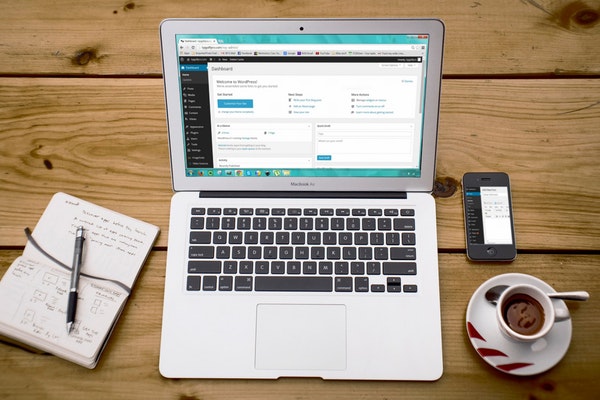Digital banking has become increasingly popular, with a whopping 78% of Americans preferring to bank digitally. However, with the convenience of online transactions comes the critical need to ensure the security and safety of your financial data. By following these top digital banking security practices, you can enhance the protection of your online transactions and safeguard your valuable financial information.
Key Takeaways
- Choose strong and unique passwords to protect your online banking accounts.
- Enable two-factor authentication for an additional layer of security.
- Avoid using public Wi-Fi when accessing your online banking services.
- Sign up for banking alerts to stay informed about any suspicious activity.
- Be cautious of phishing scams and avoid sharing personal information.
Choose Strong and Unique Passwords

When it comes to securing your online banking, one of the most crucial steps you can take is choosing strong and unique passwords. Weak passwords make it easier for hackers to gain unauthorized access to your online accounts, including your online banking. To improve your password security, consider the following tips:
- Avoid common mistakes: Many people make the mistake of using personal information or common words as their passwords. Avoid using your name, birthdate, address, or any information that can be easily guessed or found online.
- Create longer passwords: Longer passwords are generally more secure. Aim for a minimum of 10 characters, but the longer, the better. The extra length makes it harder for hackers to crack your password through brute-force attacks.
- Use a mix of characters: A strong password should include a combination of uppercase and lowercase letters, numbers, and special characters. This variation adds complexity and makes it more difficult for automated programs to crack your password.
- Avoid password reuse: Using the same password for multiple logins puts all of your accounts at risk. If one account is compromised, all others with the same password become vulnerable. Create unique passwords for each online banking account and all other important logins you have.
- Regularly update your passwords: It’s recommended to update your passwords regularly, at least every six months. Regularly changing your passwords ensures that even if someone gains access to your passwords, they will be ineffective after a certain period of time.
By following these password best practices, you can significantly enhance the security of your online banking and protect your sensitive financial information from unauthorized access.
Note: Image depicts the importance of strong passwords for online security.
Enable Two-Factor Authentication

When it comes to online banking security, one of the most effective measures you can take is to enable two-factor authentication. This added layer of protection can significantly enhance the security of your online banking account.
Two-factor authentication works by requiring an additional security test after entering your login credentials. This test can take various forms, such as entering a special code sent to your phone or using biometric verification like fingerprint or facial recognition.
By implementing two-factor authentication, you make it much more difficult for hackers to gain unauthorized access to your online banking account, even if they manage to obtain your password. This extra step of verification adds an additional barrier that must be overcome, providing an extra level of defense against potential threats.
By enabling two-factor authentication, you strengthen the security of your online banking transactions and safeguard your financial information from unauthorized access. It is an important step in ensuring the protection and privacy of your online banking activities.
Steer Clear of Public Wi-Fi

When it comes to online banking security, one of the key considerations is the use of public Wi-Fi networks. While public Wi-Fi may be convenient, it poses significant risks to the security of your online transactions and financial data.
Public Wi-Fi networks are often unencrypted, making it easier for hackers to intercept and steal your sensitive information. The lack of encryption leaves your data vulnerable to man-in-the-middle attacks, where cybercriminals intercept and alter the communication between your device and the banking server. Additionally, malicious actors can set up fake Wi-Fi hotspots to trick unsuspecting users into connecting to them, enabling them to access and compromise your online banking activities.
Another risk associated with public Wi-Fi is the potential exposure to malware. Cybercriminals can inject malware into unsecured networks, which can then infect your device and compromise the security of your online banking applications and transactions.
Given these risks, it is best to avoid using online banking services on public Wi-Fi networks whenever possible. However, if you must access your online banking account while on a public network, there are a few precautions you can take to protect yourself:
- Disable public file sharing: Public Wi-Fi networks often have file sharing enabled by default, which can expose your device to unauthorized access. Make sure to disable this feature before connecting to the public network.
- Stick with secure sites: When accessing your online banking account, only use secure websites that have “https” in the URL. This indicates that the site has an SSL certificate, which encrypts the data transmitted between your device and the website’s server.
- Consider using a virtual private network (VPN): A VPN encrypts your internet connection and masks your IP address, providing an additional layer of security when using public Wi-Fi. It creates a secure tunnel between your device and the VPN server, protecting your data from interception.
By being cautious and taking these measures, you can minimize the risks associated with using online banking on public Wi-Fi networks and ensure a secure internet connection for your financial transactions.
Stay Safe Quote:
“Using public Wi-Fi for online banking is like handing your financial information to a stranger. It’s best to steer clear and protect your financial data with secure internet connections.” – Online Security Expert
Sign Up for Banking Alerts

Banking alerts play a crucial role in keeping your online banking account secure. By signing up for banking alerts, you can receive notifications of potential fraudulent or suspicious activities. These alerts can give you peace of mind and ensure that you stay informed about the financial activities happening in your account.
When you sign up for banking alerts, you have the option to receive notifications for various events, including:
- Low or high balances
- New transactions
- Failed login attempts
- Unusual account activity
These alerts act as an early warning system, helping you identify any potential fraudulent activities before they escalate. If you receive an alert that indicates suspicious or fraudulent activity, it’s important to take immediate action.
Contact your bank immediately to report the issue and seek guidance on the next steps. Your bank will provide you with instructions on how to protect your account, which may include changing passwords or initiating fraud investigations.
Remember, timely response is crucial when it comes to addressing fraud and safeguarding your financial well-being. By signing up for banking alerts and being proactive, you can play an active role in fraud detection and prevention.
Be Wary of Phishing Scams

Phishing scams are a common method used by identity thieves to gain access to personal and financial information. These scams often involve emails or texts that appear to come from your bank, requesting you to log in and update your information.
Be cautious of such emails, verify the sender’s email address, and avoid sharing personal details unless you have verified the legitimacy of the request.
Phishing scams can be sophisticated and convincing, using tactics like creating fake websites that resemble the legitimate online banking portals. They often exploit psychological tactics to induce urgency or fear to prompt users to disclose sensitive information.
“Phishing scams often prey on people’s trust and fear. They make use of familiar logos, official language, and a sense of urgency to persuade individuals to take immediate action, such as clicking on a link or providing sensitive information.”
To protect yourself from phishing scams:
- Be skeptical of emails or texts requesting personal or financial information.
- Verify the sender’s email address before responding or clicking on any links.
- Avoid providing personal details through email or text unless you have independently confirmed the legitimacy of the request.
- Keep your operating system and antivirus software up to date to minimize the risk of falling victim to malware.
- Regularly review your online banking transactions and statements to identify any unauthorized activity.
By staying vigilant and being aware of the signs of phishing scams, you can protect yourself and your financial information from cybercriminals.
Choose Trustworthy Financial Apps

When it comes to utilizing financial apps, including mobile banking apps, prioritizing app security is paramount.
To ensure the safety of your financial information, it is crucial to download apps from reputable sources such as your bank’s website or official app marketplaces. These platforms have stringent security protocols in place to safeguard your sensitive data.
Before downloading a financial app, take the time to check the developer details and read user reviews. This step will give you insight into the app’s reputation and help you make an informed decision.
Additionally, exercise caution when sharing your login credentials with third-party apps. It’s recommended to research their security policies and past data breaches to assess their reliability.
Remember, choosing trustworthy financial apps is an essential step in protecting your financial well-being and ensuring a secure mobile banking experience.
Is Online Banking Safe?

Online banking has become a widely adopted method for managing finances, offering convenience and accessibility. While banks implement various security measures to safeguard customer data, it is essential to understand the potential risks involved and take necessary precautions to ensure online banking safety.
One of the key security measures employed by banks is data encryption, which protects sensitive information from unauthorized access. Additionally, secure email messaging ensures the confidentiality of communication between the bank and the customer. Two-factor authentication adds an extra layer of security by requiring users to provide a second form of verification, such as a unique code or biometric authentication, to access their accounts.
However, it is important to acknowledge that certain risks still exist. Phishing scams, for example, attempt to deceive users into providing their personal information through fraudulent emails or websites. Viruses and malware can also pose a threat, particularly when using compromised devices or unsecured networks.
To mitigate these risks, it is crucial to stay vigilant and follow security best practices:
- Choose strong and unique passwords for your online banking accounts. Avoid using personal information or common words and regularly update your passwords.
- Enable two-factor authentication whenever available to add an extra layer of security to your online banking login process.
- Avoid accessing your online banking account on public or unsecured Wi-Fi networks to protect against potential eavesdropping or man-in-the-middle attacks. If necessary, consider using a virtual private network (VPN) for a secure connection.
- Be cautious of phishing attempts and avoid clicking on suspicious links or providing personal information unless you have verified the legitimacy of the request.
- Regularly monitor your online banking activity and report any suspicious transactions or unauthorized access to your financial institution.
By exercising caution and adhering to these best practices, you can enhance the security of your online banking activities and minimize the risk of falling victim to cyber threats. Remember to stay informed about evolving security threats and leverage the security features provided by your bank to ensure a safe online banking experience.
Common Online Banking Scams

Despite the security measures in place, online banking users can still fall victim to scammers and hackers. It’s important to be aware of common online banking scams and exercise caution to protect your financial information.
Phishing Texts/Emails
Phishing is a common tactic used by scammers to trick individuals into revealing their personal and financial information. These scammers may send deceptive texts or emails, posing as banks or other trusted entities, in an attempt to obtain sensitive data. They often create a sense of urgency, prompting recipients to click on malicious links or provide confidential information.
Safeguard against phishing texts/emails by:
- Verifying the source of the message before taking any action
- Never clicking on suspicious links or providing personal information
- Contacting the bank directly to verify any requests for sensitive information
Malware Attacks
Malware, such as viruses and spyware, can infect devices and compromise the security of online banking activities. Scammers often employ methods like malicious attachments, drive-by downloads, or infected websites to distribute malware. Once installed, these malware programs can log keystrokes, capture login details, and gain unauthorized access to personal financial accounts.
To protect against malware:
- Keep your devices and antivirus software up to date
- Avoid clicking on suspicious links or downloading files from unknown sources
- Regularly scan your devices for malware and remove any detected threats
Fake Banking Apps
Scammers may create fake banking apps that mimic the appearance and functionality of legitimate ones. These malicious apps are often designed to steal personal information or financial credentials from unsuspecting users. They may be distributed through unofficial app stores or presented as legitimate updates to existing apps.
Protect yourself from fake banking apps by:
- Only downloading banking apps from official app marketplaces or the bank’s official website
- Reading user reviews and verifying the developer’s details before downloading any app
- Checking for any suspicious permissions requested by the app during installation
Remember, scammers constantly adapt their tactics, so it’s crucial to stay vigilant and regularly educate yourself about emerging scams in the online banking space.
By staying informed and exercising caution, you can reduce the risk of falling victim to online banking scams and protect your financial well-being.
Top Online Banking Safety Tips (& Mobile Banking Apps)

When it comes to online banking, ensuring the safety and security of your financial transactions is paramount. To protect yourself from potential cyber threats, it’s important to follow these top online banking safety tips:
- Use Strong and Unique Passwords: Creating strong and unique passwords is the first line of defense against unauthorized access. Avoid using common words, personal information, or simple passwords. Instead, use a combination of upper and lowercase letters, numbers, and special characters.
- Enable Two-Factor Authentication: Two-factor authentication adds an extra layer of security to your online banking. By requiring an additional verification step, such as a unique code sent to your mobile device, it makes it harder for hackers to gain access to your account.
- Download Official Banking Apps: When accessing your banking services through mobile apps, only download them from trusted sources. Stick to the official app marketplaces provided by your bank to minimize the risk of downloading fraudulent or malicious apps.
- Avoid Dubious Links: Be cautious of clicking on links received through emails or text messages, especially ones that ask for personal or financial information. Verify the legitimacy of the sender and ensure you’re on a secure website before entering any sensitive data.
- Regularly Review Account Statements: Monitoring your account statements regularly allows you to identify any unauthorized transactions or suspicious activities promptly. Report any discrepancies to your bank immediately.
- Keep Devices and Apps Up to Date: Ensure that your devices and online banking apps are always updated with the latest security patches and upgrades. This helps protect against known vulnerabilities and ensures you’re benefiting from the latest security features.
- Avoid Public Wi-Fi for Online Banking: Public Wi-Fi networks are often unsecured, making them vulnerable to hackers. It’s best to avoid using public Wi-Fi when conducting online banking transactions. If you must use public Wi-Fi, consider using a VPN (Virtual Private Network) for an added layer of security.
By following these online banking safety tips, including using strong passwords, enabling two-factor authentication, and downloading official banking apps, you can help safeguard your financial information and protect yourself from potential cyber threats.
Safeguard Your Identity for Free

In an era where online privacy and identity theft protection are paramount, it is essential to take proactive measures to safeguard your personal information. Trend Micro’s ID Protection offers a comprehensive suite of tools designed to enhance your online privacy and protect against identity theft.
With features like personal identity monitoring, social media monitoring, a password manager, and a privacy-enhancing browser extension, Trend Micro’s ID Protection empowers you to take control of your digital identity.
By monitoring your personal information and alerting you to potential threats, this free service acts as a virtual shield, ensuring your online privacy is safeguarded at all times.
Key Features of Trend Micro’s ID Protection:
- Personal Identity Monitoring: Gain peace of mind with continuous monitoring of your personal information across various online platforms.
- Social Media Monitoring: Stay informed about the information shared on your social media profiles and detect any potential risks.
- Password Manager: Securely store and manage your passwords, ensuring they are strong and unique for each online account.
- Privacy-Enhancing Browser Extension: Protect your browsing activities by blocking intrusive trackers and enhancing your online privacy.
With these powerful tools at your disposal, you can actively prevent identity theft and maintain the privacy of your personal information.
To further strengthen your defense against online threats, it is crucial to practice other sound security measures, such as using strong and unique passwords, enabling two-factor authentication, and being cautious of phishing scams.
Remember, safeguarding your identity is a continuous process that requires vigilance and proactive action. Take advantage of Trend Micro’s ID Protection today and embrace the peace of mind that comes with knowing your personal information is secure.
Know Your Rights

Financial institutions have a responsibility to protect customer privacy and ensure the security of financial information. They are required to take reasonable efforts to safeguard consumer data, in accordance with federal and state laws. These laws include data security regulations that dictate the measures businesses must implement to protect sensitive information.
Consumer rights play a crucial role in maintaining financial privacy and data security. By being aware of your rights as a consumer, you can ensure that your financial data remains secure in the digital landscape. Financial institutions are obligated to provide transparency regarding their data handling practices and must obtain explicit consent when collecting and using personal information.
If you suspect a breach of your financial privacy or inadequate data security measures, you have the right to take action. This may include filing a complaint with relevant regulatory bodies, such as the Consumer Financial Protection Bureau (CFPB) or the Federal Trade Commission (FTC). These organizations are responsible for enforcing consumer protection laws and investigating complaints related to financial privacy and data security.
It’s important to understand that your rights extend beyond financial data security. They encompass various aspects of consumer protection, such as fair lending practices, fraud prevention, and dispute resolution. Familiarizing yourself with these rights can empower you to make informed decisions and hold financial institutions accountable.
Financial institutions have a legal and ethical obligation to protect consumer privacy and prioritize data security. By knowing your rights as a consumer, you can actively participate in safeguarding your financial information and ensuring a secure digital banking experience.
To summarize, understanding your consumer rights is essential in maintaining financial privacy and data security. By staying informed, you can assert your rights, hold financial institutions accountable, and contribute to a safe and secure banking environment.
Stay Safe and Secure

In the digital age, ensuring financial security is vital. By following best practices for online banking security and staying updated on the latest threats and protective measures, individuals can protect their financial futures. Leveraging the convenience of online banking while prioritizing security can provide peace of mind.
Online banking has revolutionized the way we manage our finances, providing quick and convenient access to accounts and transactions. However, with the increased reliance on technology comes the need for enhanced financial security. Cybercriminals are constantly evolving their techniques to exploit vulnerabilities and gain unauthorized access to sensitive information. To safeguard yourself against these threats, it is essential to adopt the following security practices:
- Choose strong and unique passwords: Avoid using easily guessable passwords and opt for a combination of letters, numbers, and special characters. Update your passwords regularly.
- Enable two-factor authentication: Add an extra layer of security to your online banking by enabling two-factor authentication, which requires a second verification step in addition to your password.
- Avoid public Wi-Fi: Public Wi-Fi networks are risky as they can be easily compromised. Avoid conducting online banking transactions while connected to public Wi-Fi to prevent unauthorized access to your financial information.
- Be cautious of phishing scams: Phishing emails and messages are designed to trick you into disclosing personal and financial information. Be wary of suspicious communications and verify the authenticity of any requests before providing sensitive data.
- Regularly monitor your accounts: Review your online banking statements regularly and report any unauthorized transactions or suspicious activity to your bank immediately.
- Keep your devices and apps up to date: Regularly update your operating system, banking apps, and antivirus software to ensure you have the latest security patches and protections.
By following these security measures, you can ensure secure transactions and protect your financial information from cyber threats. Remember, prioritizing financial security is not only essential for your personal well-being but also for safeguarding your financial future.
Conclusion
Safeguarding your finances is crucial in an increasingly digital world. Implementing top digital banking security practices is essential to ensure the security of your online transactions and protect your financial data from cyber threats.
Start by choosing strong passwords that are unique to each online banking account. Avoid using personal information or common words and opt for longer passwords with a mix of upper and lowercase letters, numbers, and special characters. Remember to update your passwords regularly and never reuse them across multiple accounts.
Enable two-factor authentication whenever possible to add an extra layer of security to your online banking. This feature requires you to pass a second security test, such as entering a special code or using biometric verification, after entering your login credentials. By doing so, you make it difficult for hackers to access your account even if they have your password.
In addition, it’s crucial to be cautious of phishing scams. Always verify the legitimacy of emails or texts that request you to log in and update your information. Avoid sharing personal details unless you have ensured the authenticity of the request. By staying informed and vigilant, you can protect yourself from falling victim to these scams.
By following these digital banking security best practices, you can enhance the safety and security of your online transactions. Prioritize the safety of your digital banking activities, and you’ll have peace of mind while managing your finances online.
FAQ
What are the top digital banking security practices?
The top digital banking security practices include choosing strong and unique passwords, enabling two-factor authentication, avoiding public Wi-Fi, signing up for banking alerts, being wary of phishing scams, choosing trustworthy financial apps, staying updated on online banking safety tips, safeguarding your identity, understanding your rights, and prioritizing financial security.
How do I choose strong and unique passwords for online banking?
To choose strong and unique passwords, avoid using personal information or common words. Instead, opt for longer passwords with a mix of upper and lowercase letters, numbers, and special characters. It’s important to avoid using the same password for multiple logins and to update passwords regularly.
What is two-factor authentication and why is it important for online banking?
Two-factor authentication adds an extra layer of security to your online banking by requiring a second security test, such as entering a special code or using biometric verification, after entering your login credentials. Enabling two-factor authentication can make it difficult for hackers to access your online banking account even if they have your password.
Why should I steer clear of public Wi-Fi for online banking?
Public Wi-Fi networks pose security risks, including man-in-the-middle attacks, data transmissions over unencrypted networks, malicious hotspots, and malware. It’s best to avoid using online banking on public Wi-Fi. If you must access online banking on a public network, disable public file sharing, stick with secure sites (https), and consider using a virtual private network (VPN) for added security.
Why should I sign up for banking alerts?
Banking alerts notify you of potential fraudulent or suspicious activity in your online banking account. You can receive alerts for low or high balances, new transactions, failed login attempts, and more. If you receive an alert and suspect fraud, contact your bank immediately and change your passwords.
How can I protect myself from phishing scams while online banking?
Phishing scams are a common method used by identity thieves to gain access to personal and financial information. To protect yourself, be cautious of emails or texts that appear to come from your bank, requesting you to log in and update your information. Verify the sender’s email address, avoid sharing personal details unless you have verified the legitimacy of the request, and report suspicious messages to your bank.
What should I consider when choosing financial apps for online banking?
When choosing financial apps, including mobile banking apps, it’s important to choose trustworthy ones. Download apps from reputable sources like your bank’s website or official app marketplaces. Check the developer details and read reviews before downloading. Be cautious of sharing your login credentials with third-party apps and research their security policies and past data breaches.
Is online banking safe?
Online banking is generally safe, with banks implementing various security measures like data encryption, secure email messaging, and two-factor authentication. However, there are risks like phishing and viruses, especially when using unsecured networks or compromised devices. It’s essential to stay vigilant and follow security best practices while banking online.
What are some common online banking scams to be aware of?
Common online banking scams include phishing texts/emails, malware, and fake banking apps. Scammers may try to trick you into providing personal and financial information or downloading malicious software. It’s important to be aware of these tactics and exercise caution while interacting with suspicious messages and downloading apps.
What are some top online banking safety tips?
To enhance online banking safety, it’s recommended to use strong and unique passwords, enable two-factor authentication, choose trustworthy financial apps, avoid clicking on dubious links, regularly review account statements, keep devices and apps up to date, and avoid using public Wi-Fi networks for online banking.
How can I safeguard my identity for free while banking online?
Trend Micro’s ID Protection offers a range of tools to enhance online privacy and protect against identity theft. Features include personal identity monitoring, social media monitoring, a password manager, and a privacy-enhancing browser extension. Taking steps to safeguard your identity is crucial in the digital age.
What protections are in place to ensure the security of consumer financial data?
Financial institutions are required to take reasonable efforts to protect customer privacy and the security of financial information. Certain federal and state laws also mandate data security requirements for businesses. It’s important for consumers to be aware of their rights and the protections in place to ensure their financial data remains secure.
How can I stay safe and secure while banking online?
In the digital age, ensuring financial security is vital. By following best practices for online banking security, staying updated on the latest threats and protective measures, and prioritizing the safety of your digital banking activities, you can enhance the security of your online transactions and protect your financial data from cyber threats.
 Sharing is Caring Blog Something different…
Sharing is Caring Blog Something different…









